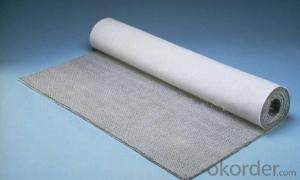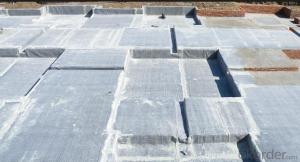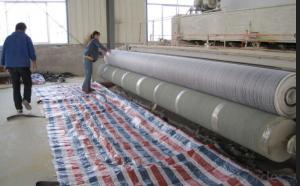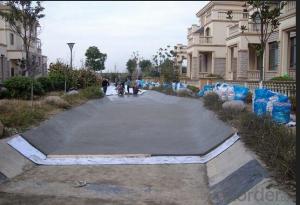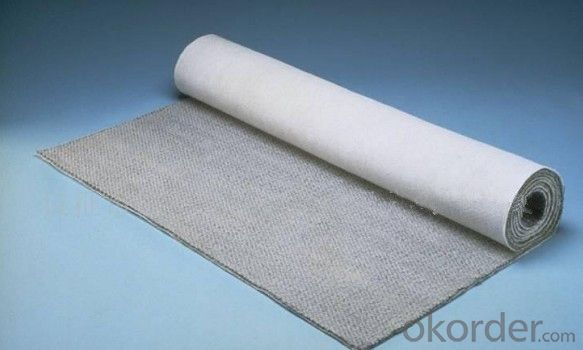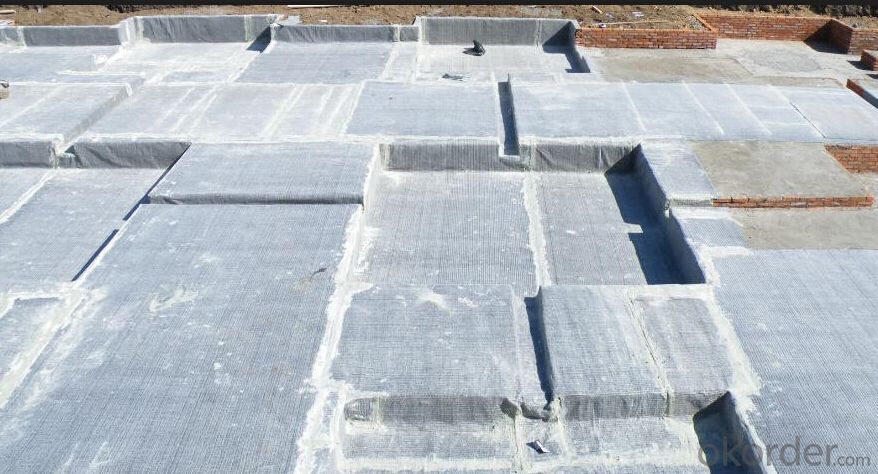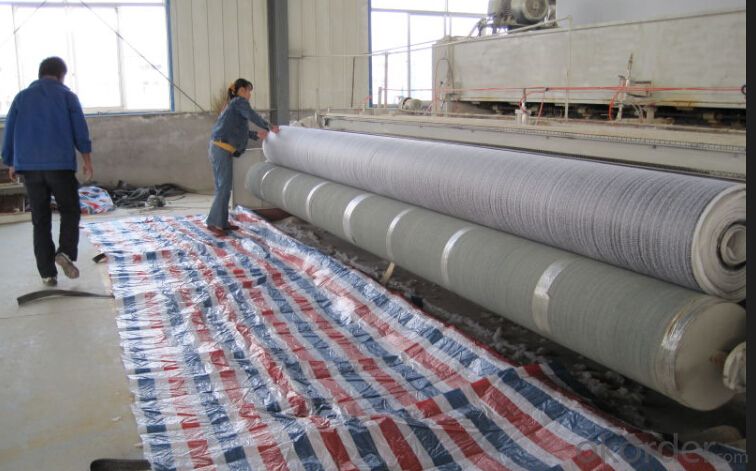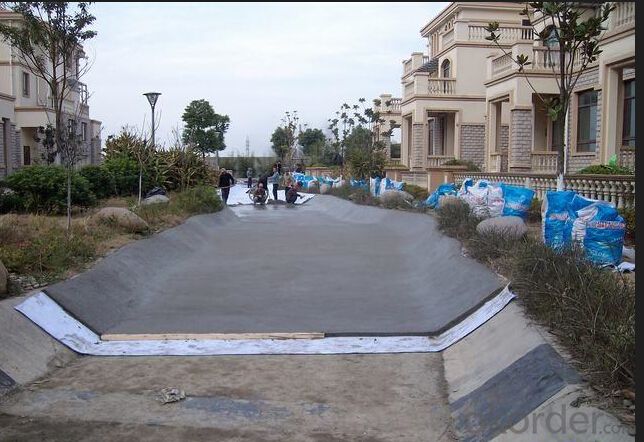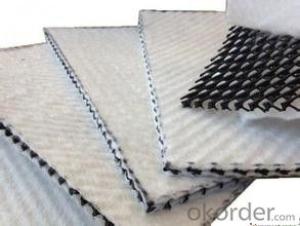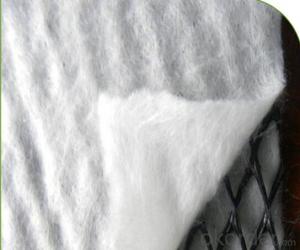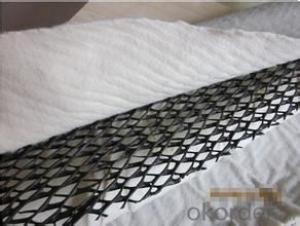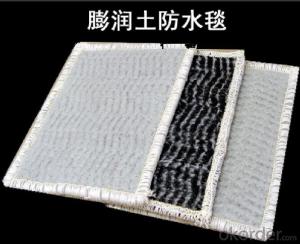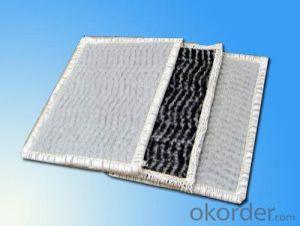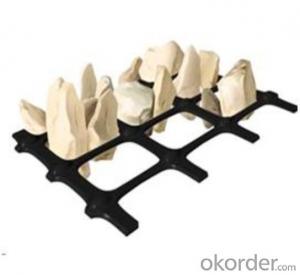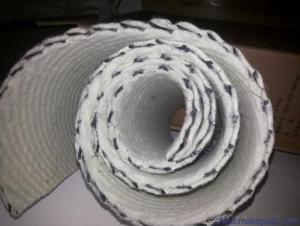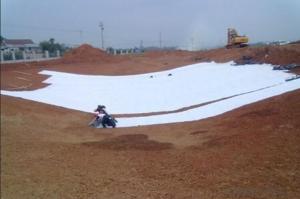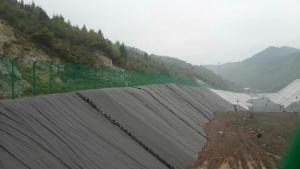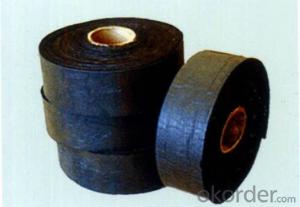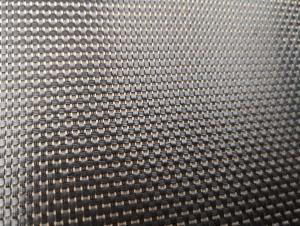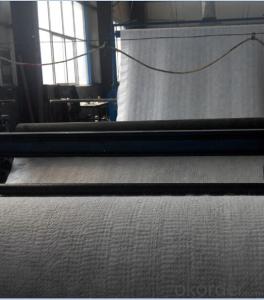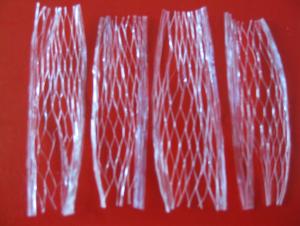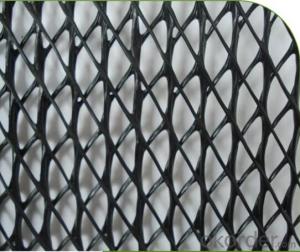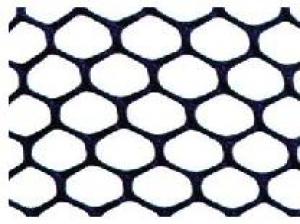Landfill and Disposal Facilities Hot sale Geosynthetic Clay Liners
- Loading Port:
- Qingdao
- Payment Terms:
- TT OR LC
- Min Order Qty:
- 5000 m²
- Supply Capability:
- 100000 m²/month
OKorder Service Pledge
OKorder Financial Service
You Might Also Like
Landfill and disposal facilities Hot sale Geosynthetic Clay Liners
Introduction of GCL
Landfill and disposal facilities Hot sale Geosynthetic Clay Liners(GCL) are high performance needle
punched environmental reinforced composites.
Combine two durable geotextile outer layers with a uniform core of natural sodium bentonite
clay to form a hydraulic barrier. Fibers from the non-woven geotextile are needle punched
through the layer of bentonite and incorporated into the other geotextile (either a woven or non-woven).
when hydrated under a confining load, the bentonite swells to form a low permeability clay layer with the
equivalent hydraulic protection of several feet of compacted clay.
Features
Comacted with clay liner, it has the advantages of small size, light weight, good flexibility and seal, easy for construction and suitable for uneven settelement Application of GCL
Applications
· Landfills Mud Pits
· Lagoons Canals
· Bund Lining Tank Lining
· Fish Farm Lining Roof Lining
· Waste Water Pits Ponds and Reservoirs
· Dams Floating Covers
· Vertical Cutoff Walls Hydraulic Structure
· Basement Lining Drip Irrigation Pond
Technical Data of GCL
Items | Testing Method | Required values |
Bentonite Swell Coefficient | ASTMD5890 | ≥ 24mL/2g |
Fluid Loss | ASTMD5891 | ≤ 18mL |
Bentonite Weight per unit | ASTMD5993 | ≥4.8kg/m2 |
Tensile Strength | ASTMD4632 | ≥400N |
Peeling Strength | ASTMD4632 | ≥65N |
Indicating Flowmeter | ASTMD5887 | ≤1 × 10-8m3/m2/sec |
Permeability Coefficient | ASTMD5887 | ≤5 × 10-225px/sec |
Tensile Strength after soaking | ASTMD5321 | ≥24kPa typical |
FAQ:
How many quantity for one 20'' container?
About 5,000m2, 16rolls
What's your delivery time?
About 15-20days against deposit received
. What's your package?
Per roll with two pieces woven bag
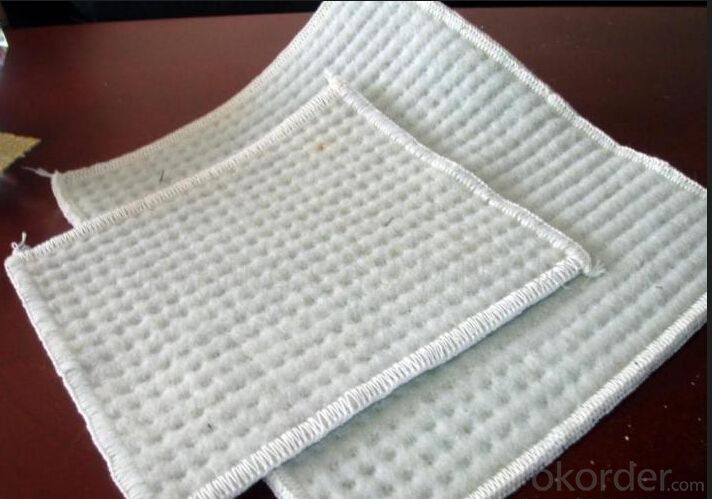
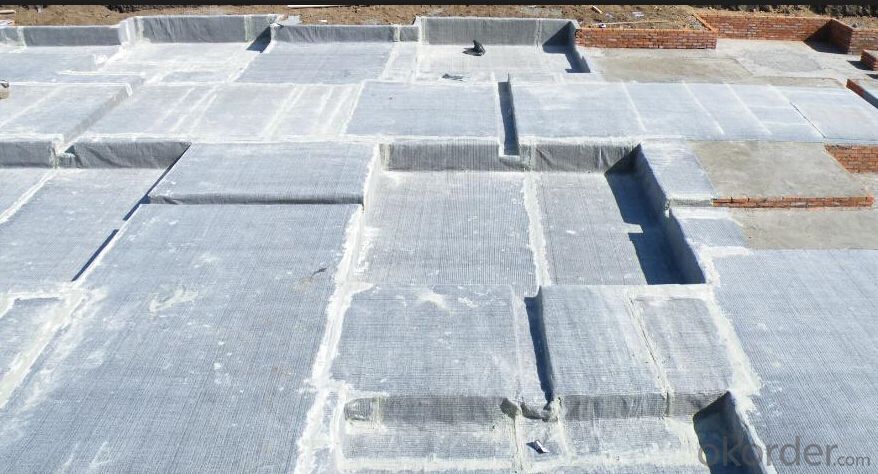
- Q: Can geocells be used for slope stabilization?
- Yes, geocells can be used for slope stabilization. Geocells are three-dimensional cellular confinement systems made from high-density polyethylene (HDPE), which can be filled with soil or other suitable materials. These cells provide a strong, stable structure that prevents soil erosion and helps in stabilizing slopes. The geocells increase the effective friction angle of the soil, improve load distribution, and promote vegetation growth, making them an effective solution for slope stabilization.
- Q: A short duration of housing, and now have the same level of 42.5 for the silicate and slag cement selection. From the point of view of the completion of the construction period, what better cement should be used?
- The actual situation of the specific analysis of it
- Q: What are the fire safety properties of earthwork products?
- Earthwork products, such as soil and clay, do not possess inherent fire safety properties. In fact, these materials can be highly combustible and may contribute to the spread and intensity of fires. Adequate fire prevention measures, such as maintaining clearances, implementing fire breaks, and employing fire-resistant coatings, are necessary to mitigate the fire risks associated with earthwork products.
- Q: How do geogrids aid in reinforcement of retaining walls in earthwork projects?
- Geogrids aid in the reinforcement of retaining walls in earthwork projects by providing additional tensile strength and stability to the structure. These grid-like materials are placed within the soil layers of the retaining wall, effectively distributing the forces exerted by the retained soil. This reinforcement helps prevent wall failure, improves overall stability, and extends the lifespan of the structure.
- Q: What is the function of geosynthetic drainage materials in sports field drainage?
- The function of geosynthetic drainage materials in sports field drainage is to provide an efficient and effective system for removing excess water from the playing surface. These materials, such as geotextiles and geocomposites, are designed to facilitate the rapid flow of water while preventing soil particles from clogging the drainage system. They aid in maintaining proper field drainage, preventing waterlogged conditions, and ensuring a safe and playable surface for athletes.
- Q: Can earthwork products be used in slope protection?
- Yes, earthwork products can be used in slope protection. Earthwork products such as geotextiles, geogrids, and erosion control blankets are commonly used to reinforce slopes, control erosion, and stabilize the soil. These products can help prevent slope failures, reduce sediment runoff, and improve the overall stability and long-term durability of the slope.
- Q: What are the load-bearing capacities of earthwork products?
- The load-bearing capacities of earthwork products can vary depending on factors such as the type of material used, compaction levels, and the specific application. It is essential to consult engineering or manufacturer specifications to determine the load-bearing capacities of specific earthwork products for accurate and safe usage.
- Q: What are the advantages of using geosynthetic materials in canal lining projects?
- There are several advantages to using geosynthetic materials in canal lining projects. Firstly, geosynthetics provide excellent resistance to erosion and chemical degradation, ensuring long-term durability of the canal lining. Secondly, these materials offer superior hydraulic performance, allowing for efficient water flow and reduced seepage. Additionally, geosynthetics are lightweight and easy to install, saving time and labor costs during construction. Lastly, these materials are highly flexible and adaptable, making them suitable for various project conditions and allowing for effective reinforcement and stabilization of the canal lining.
- Q: Can earthwork products be used for constructing outdoor kitchen areas?
- Yes, earthwork products, such as soil, stones, and gravel, can be used for constructing outdoor kitchen areas. These materials can be used for building foundations, constructing retaining walls, creating pathways, and landscaping the surrounding area.
- Q: Are earthwork products eco-friendly?
- Earthwork products can be eco-friendly if they are sourced responsibly and produced using sustainable practices. For example, using natural materials like clay, sand, or stone for construction can minimize environmental impact. Additionally, implementing erosion control measures and proper land management techniques during earthwork projects can further enhance their eco-friendliness. However, it ultimately depends on the specific practices and materials used, so it's important to thoroughly research and choose environmentally conscious options.
Send your message to us
Landfill and Disposal Facilities Hot sale Geosynthetic Clay Liners
- Loading Port:
- Qingdao
- Payment Terms:
- TT OR LC
- Min Order Qty:
- 5000 m²
- Supply Capability:
- 100000 m²/month
OKorder Service Pledge
OKorder Financial Service
Similar products
Hot products
Hot Searches
Related keywords
